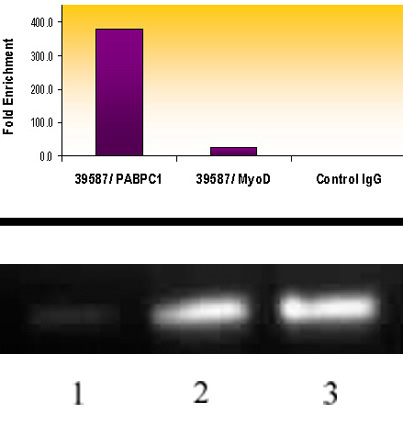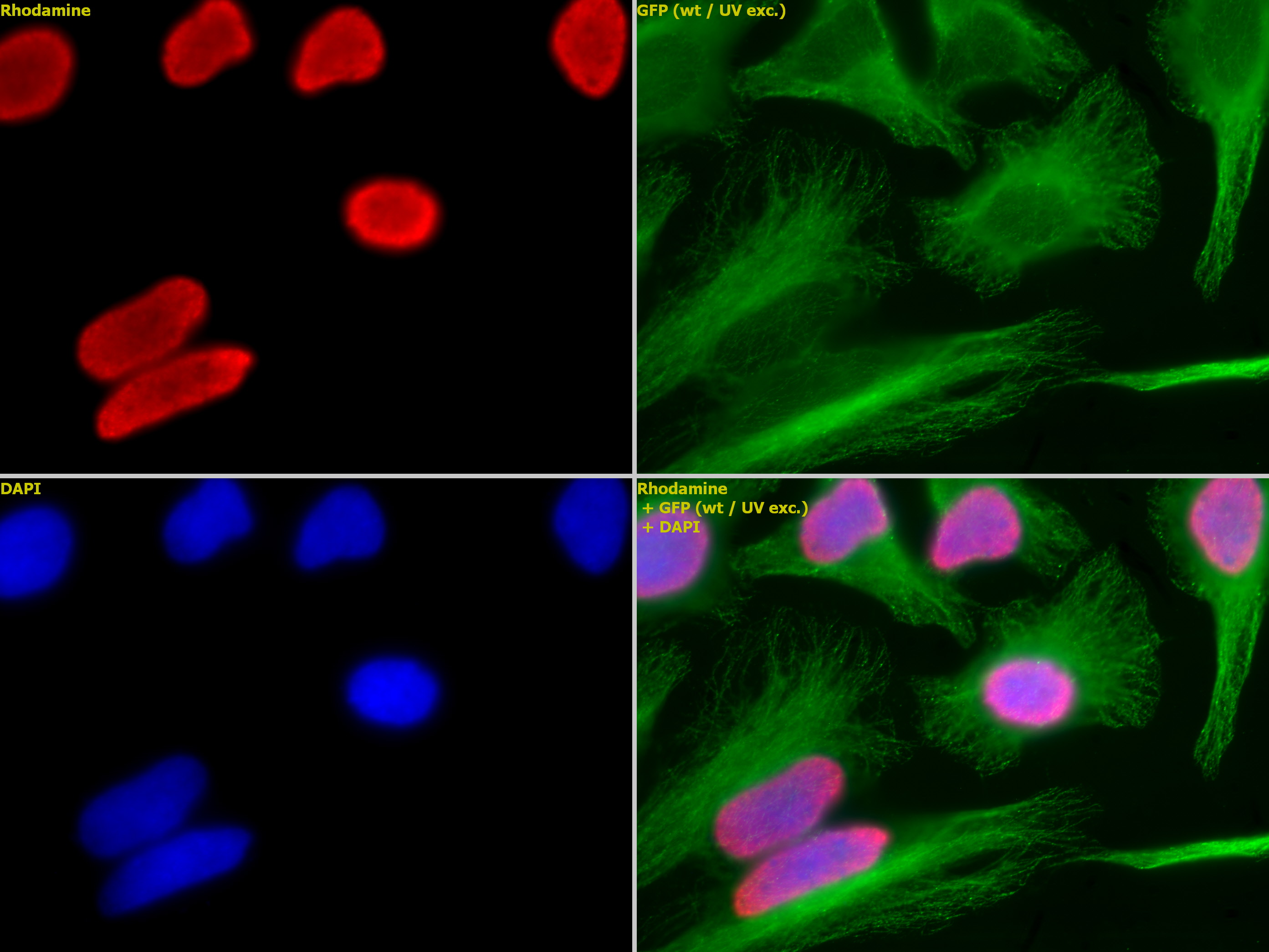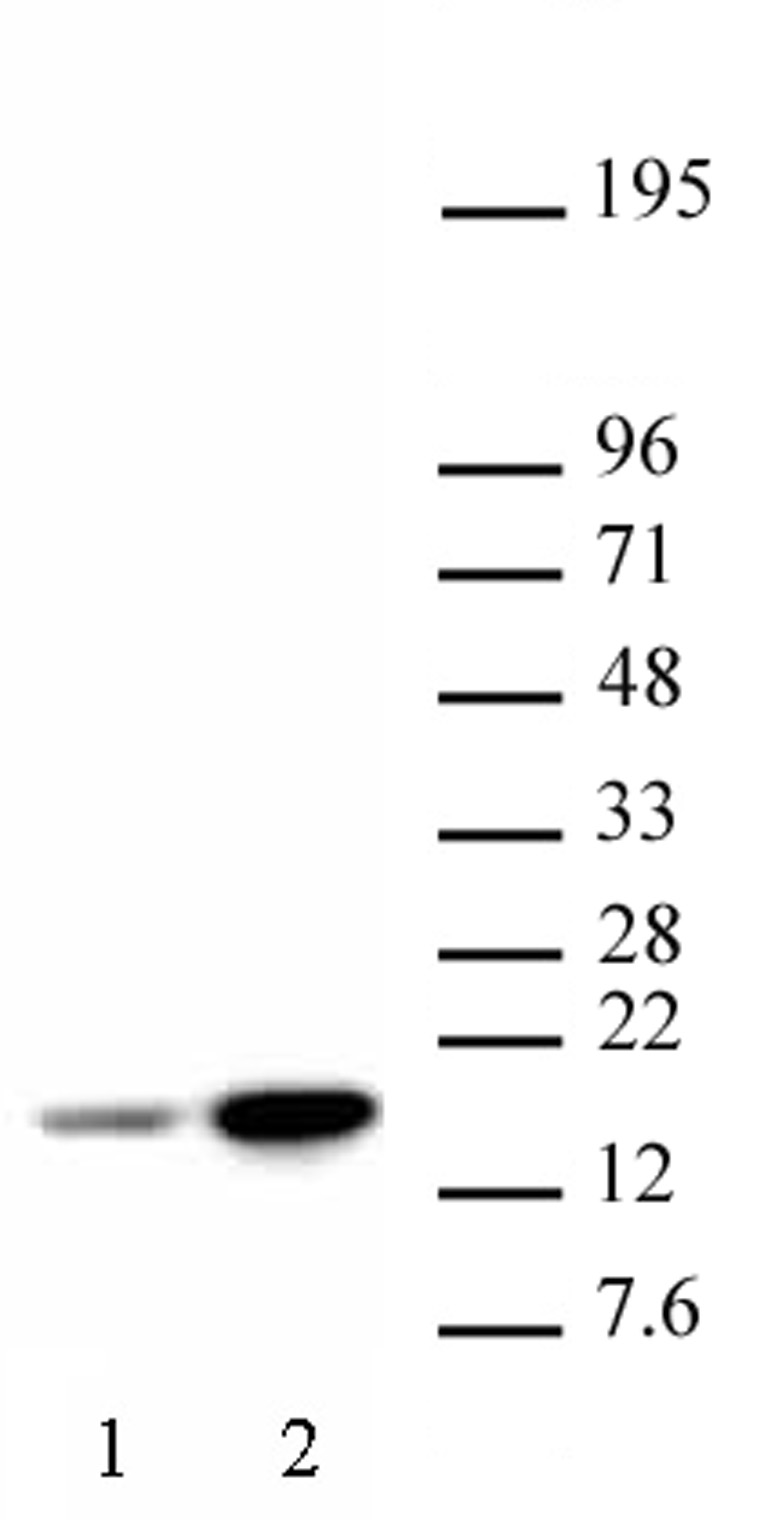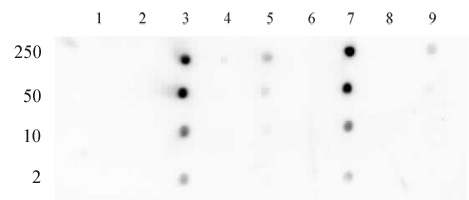Histone H3K18ac antibody (pAb)
Host / Isotype
Rabbit / Serum
Reactivity
Human, Wide Range Predicted
Applications
ChIP, DB, ICC, IF, IHC, WB
Cat No : 39587,39588 39587
Synonyms
Validation Data Gallery
Product Information
| Tested Applications |
ChIP, DB, ICC, IF, IHC, WB
Applications Validated by Active Motif: ChIP: 5 - 10 ul per ChIP ICC/IF: 1:500 - 1:1,000 dilution WB: 1:2,500 - 1:10,000 dilution |
| Tested Reactivity | Human, Wide Range Predicted |
| Host / Isotype | Rabbit / Serum |
| Class | Polyclonal |
| Type | Antibody |
| Modification | Acetylated |
| Immunogen | This Histone H3 acetyl Lys18 antibody was raised against a peptide including acetyl-lysine 18 of histone H3. |
| Full Name | Histone H3K18ac antibody (pAb) |
| Synonyms | histone H3, histone, H3, histone-H3, histoneH3, pAb, polyclonal, H3 AcK18, Histone H3 Acetyl Lys18, Histone H3 Acetyl K18, Histone H3 Ac Lys18, H3 Acetyl Lys18, H3 Acetyl K18, H3 Ac Lys18, Histone H3 Acetylated Lysine 18, Histone H3 Acetyl Lysine18, H3 Acetylated Lysine 18, H3 Acetyl Lysine18, antibody, antibodies, chip, chromatin immunoprecipitation, H3K18Ac, H3AcK18, sample |
| Molecular weight | 17 kDa |
| GenBank accession number | NP_003522 |
| RRID | AB_2636965 |
| Purification Method | None |
| Buffer | Rabbit serum containing 30% glycerol and 0.035% sodium azide. Sodium azide is highly toxic. For your convenience, an IgG version (Catalog No. 39755) of this antibody that was purified by Protein A Chromatography is also available. |
| Storage | Some products may be shipped at room temperature. This will not affect their stability or performance. Avoid repeated freeze/thaw cycles by aliquoting items into single-use fractions for storage at -20°C for up to 2 years. Keep all reagents on ice when not in storage. |
Background Information
Histone H3 is one of the core components of the nucleosome. The nucleosome is the smallest subunit of chromatin and consists of 147 base pairs of DNA wrapped around an octamer of core histone proteins (two each of Histone H2A, Histone H2B, Histone H3 and Histone H4). Chromatin is subject to a variety of chemical modifications, including post-translational modifications of the histone proteins and the methylation of cytosine residues in the DNA. Reported histone modifications include acetylation, methylation, phosphorylation, ubiquitylation, glycosylation, ADP-ribosylation, carbonylation and SUMOylation; these modifications play a major role in regulating gene expression. Acetylation of histones is linked to a number of specific processes including transcriptional regulation and genomic organization.




